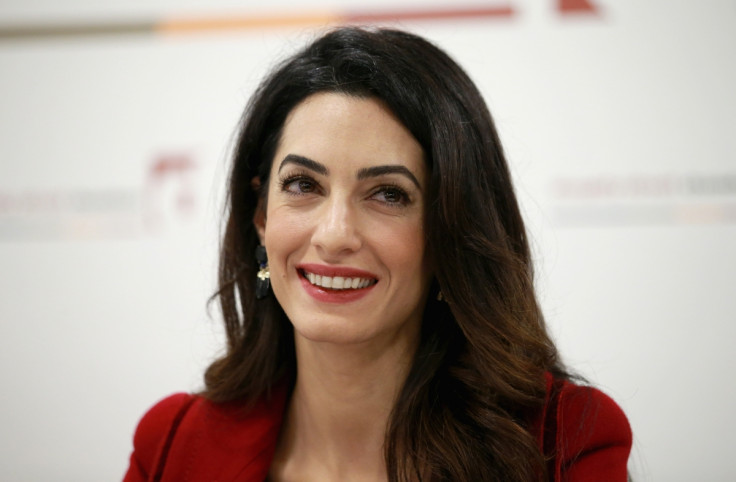Amal Clooney confronts Middle East leaders about 'unprecedented human rights crisis'

Amal Clooney has urged Middle Eastern to be "vocal and consistent" about human rights during a speech on 20 March. The human rights lawyer was a headline speaker at the International Government Communications Forum, which included the ruler of the emirate of Sharjah, Sheikh Sultan bin Mohammed Al Qasimi.
Clooney used the opportunity to advise governments to be vocal about the "unprecedented human rights crisis" that is facing Arab countries. She called on governments to respond to criticism of ruling systems with dialogue and not prison terms, while responding to protests with crowd control and not bullets.
Clooney said: "My advice to you is not only to be vocal and consistent but also to be principled in communications about human rights. The fourth suggestion I have is to be quick. Governments must be prepared to be transparent and get their message out first."
During her 12-minute speech, Clooney made specific references to countries such as Sudan, Iran and North Korea. However, she restrained from making references to human rights abuses in within the Fulg Arab countries.
Clooney has taken on high-profile international cases during her time as a human rights lawyer, including representing Egyptian-Canadian journalist Mohammed Fahmy. Fahmy spent more than one year imprisoned in Egypt before he received presidential pardons.
Clooney has also been part of a legal team that was seeking greater recognition of the 1915 Armenian genocide. On 16 March Clooney and her husband, George Clooney, met with Syrian refugees living in Berlin to mark the fifth anniversary of the Syrian conflict.
Speaking at the time, the Lebanese-born British lawyer said: "My own family is from Lebanon. They also ran away from a war and was lucky enough to be accepted by a European country in 1982 when the violence was really bad. Many years later, my family is doing well. My father has returned to Beirut."
© Copyright IBTimes 2025. All rights reserved.






















